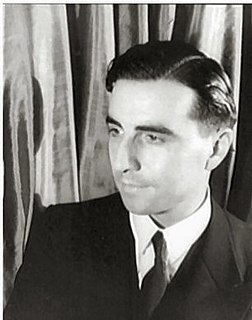A Quote by George R. R. Martin
But what a man can do and what a man will do are two different things, he knew.
Quote Topics
Related Quotes
Unless a man has pity he is not truly a man. If a man has not wept at the worlds pain he is only half a man, and there will always be pain in the world, knowing this does not mean that a man shall dispair. A good man will seek to take pain out of things. A foolish man will not even notice it, except in himself, and the poor unfortunate evil man will drive pain deeper into things and spread it about wherever he goes.
No two men see the world exactly alike, and different temperaments will apply in different ways a principle that they both acknowledge. The same man will, indeed, often see and judge the same things differently on different occasions: early convictions must give way to more mature ones. Nevertheless, may not the opinions that a man holds and expresses withstand all trials, if he only remains true to himself and others?
The philosopher Ludwig Wittgenstein once remarked that if you ask a man how much is two plus two and he tells you five, that is a mistake. But if you ask a man how much is two plus two and he tells you ninety-seven, that is no longer a mistake. The man you are talking to is operating with a wholly different logic from your own.
In effect, you're saying that if you knew how you oughtt to live, then the flaw is man could be controlled. If you knew how you ought to live, you wouldn't be forever screwing up the world. perhaps in fact the two things are actually one thing. Perhaps the flaw in man is exactly this: that he doesn't know how he ought to live.
Two ideas are psychologically deep-rooted in man: self-protection and self-preservation. For self-protection man has created God, on whom he depends for his own protection, safety and security, just as a child depends on its parent. For self-preservation man has conceived the idea of an immortal Soul or Atman, which will live eternally. In his ignorance, weakness, fear, and desire, man needs these two things to console himself. Hence he clings to them deeply and fanatically.
This is the doctrine that we preach; if a man be saved, all the honor is to be given to Christ; but if a man be lost, all the blame is to be laid upon himself. You will find all true theology summed up in these two short sentences, salvation is all of the grace of God, damnation is all of the will of man.
There are two men in each one of us: the scientist, he who starts with a clear field and desires to rise to the knowledge of Nature through observations, experimentation and reasoning, and the man of sentiment, the man of belief, the man who mourns his dead children, and who cannot, alas, prove that he will see them again, but who believes that he will, and lives in the hope – the man who will not die like a vibrio, but who feels that the force that is within him cannot die.
A man will not roll in the snow for a stream of tendency by which all things fulfill the law of their being. He will not go without food in the name of something, not ourselves, that makes for righteousness. He will do things like this, or pretty nearly like this, under quite a different impulse. He will do these things when he is in love.






































